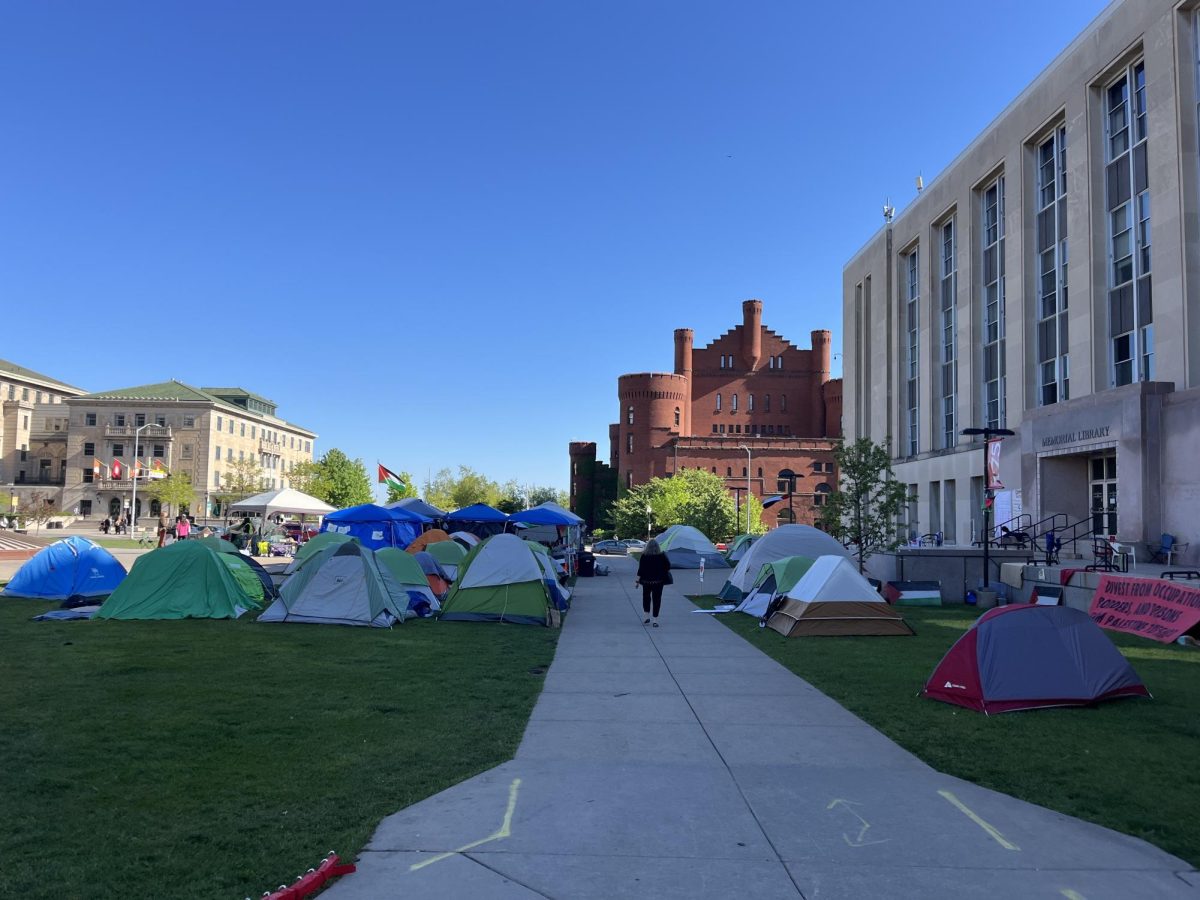
Activists from the Immigrant Workers Union protested the increase in Madison Metro fares by handing out literature at a bus stop by the Capitol Monday night.
The “call to action” lacked a large following, but three protesters in particular said they were fighting the city to make mass transportation more affordable for low-income riders.
“[The fee increase is] going to make ridership go down on the buses, which is exactly what we don’t need in this city, and it will hurt disproportionately your moderate-income person that rides the bus,” said Barbara Smith, IWU volunteer and member of the Madison Area Bus Advocates.
Smith said when people bring in a barely livable income and have to work, pay taxes and pay escalated bus prices, life becomes more difficult.
Additionally, many immigrants do not have the proper paperwork to get their driver’s license, so riding the bus is their only option, Alex Gillis, political secretary of IWU, said.
If an immigrant drives a car without a license and gets pulled over, they could be put in jail or even deported, Gillis added.
“You try to facilitate better economy for the city and better relationships for communities around the city,” Gillis said. “Now, with the raise of the prices, a lot of people will be (stuck) around the neighborhoods because they don’t have the money to go to other parts of the city.”
Carmen Clark, IWU volunteer, state worker and a late-term returning University of Wisconsin student, said the people suffering from the increase are the people who deserve to suffer the least, especially because of the current economic climate.
However, Metro spokesperson Mick Rusch said the spike in bus fares was approved to keep the service running. Without the fee increase, Rusch said Metro would be forced to cut staff and service, especially on holidays and Sundays.
“Last year an ad hoc committee met to discuss the future of Metro and wanted to not have Metro cuts, and I agreed moving forward would mean not cutting services but instead implementing new services,” Rusch said.
According to Rusch, the bus fare increase will not have a detrimental effect on low-income riders.
Metro implemented low-income bus programs where people can go to Metro and show their employment cards to receive a 31-day pass for $27.50 — half of the price regular Metro customers pay, according to Rusch.
“We have lots of different options available where people get discounted rides,” Rusch said. “A 10 ride card for $15 is cheaper than a $2 fee for each ride.”













